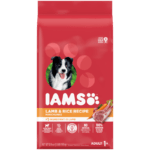
Diarrhea is a frequent problem in dogs of every age and breed. It’s crucial for pet owners to comprehend the causes, identify serious cases of diarrhea, and learn effective management strategies. This article will delve into the realm of canine diarrhea and offer actionable advice for dealing with this untidy predicament.
What Is Diarrhea?
Diarrhea occurs when your dog passes non-formed, loose, or watery stool more frequently and in larger amounts than usual. It’s a symptom rather than a disease itself, often indicating an underlying issue. Let’s dive into the details:
1. Acute vs. Chronic Diarrhea
- Acute Diarrhea: Lasts for 14 days or less and is commonly due to dietary indiscretion, sudden diet changes, or stress. Most cases resolve on their own or with simple treatment.
- Chronic Diarrhea: Persists longer than 14 days and may result from serious medical conditions like food sensitivities, inflammatory bowel disease, or cancer. Treatment for chronic diarrhea is more complex.
Why Dogs Get Diarrhea
Several factors can disrupt a dog’s well-balanced digestive system, leading to diarrhea:
1. Dietary Indiscretion
- Eating Too Much: Dogs may overindulge in food, garbage, or spoiled items, leading to gastrointestinal upset.
- Change in Diet: Abruptly switching your dog’s food can upset their stomach.
2. Stress and Anxiety
- Dogs are sensitive creatures. Stress, anxiety, or sudden changes in routine can trigger diarrhea.
3. Ingesting Indigestible Objects
- Dogs explore the world with their mouths. Swallowing foreign objects (like rocks or toys) can cause serious issues.
4. Food Allergies or Sensitivities
- Some dogs react poorly to specific ingredients, leading to chronic diarrhea.
Recognizing Severe Diarrhea
While mild cases of diarrhea may resolve on their own, severe diarrhea requires prompt attention. Look out for these signs:
1. Dehydration
- Sunken eyes, dry gums, and lethargy indicate dehydration. If your dog refuses water, seek veterinary care immediately.
2. Blood in Stool
- Bloody diarrhea can signal serious conditions like parasites, infections, or inflammatory diseases.
3. Frequent Episodes
- If diarrhea persists for more than 24 to 48 hours, consult your vet.
Effective Home Remedies
When managing dog diarrhea at home, consider these remedies:
1. Fasting
- Give your dog’s digestive system a break by withholding food for 12-24 hours.
- Ensure access to water to prevent dehydration.
2. Bland Diet
- Gradually reintroduce food with a bland diet: boiled chicken and rice.
- Avoid rich or spicy foods.
3. Probiotics
- Probiotic supplements promote gut health and aid recovery.
4. Pumpkin or Slippery Elm
- These natural remedies can help soothe the digestive tract.
5. Over-the-Counter Medications
- Consult your vet before using any OTC medications like Pepto-Bismol or Imodium.
6. Monitor and Gradual Transition
- Observe your dog’s progress and gradually transition back to their regular diet.
Remember, if your dog’s diarrhea is severe, persistent, or accompanied by other symptoms (such as vomiting), seek professional veterinary care promptly. Your furry friend’s well-being is our priority! 🐾










